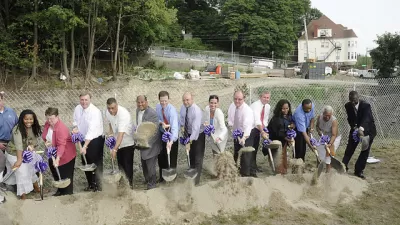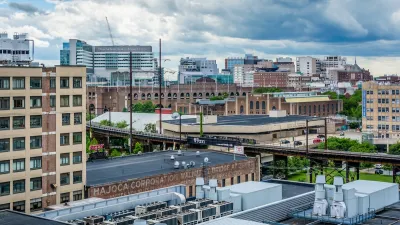A recent unofficial tally on Yelp found that 20 of the 70 Boston dive bars listed on the site had recently closed. The Boston Globe examines the trend.

"One by one, Boston is losing its dive bars," according to an article by Beth Teitell.
After listing off several examples of dive bars that have recently passed into the annals of history, Teitell makes the pronouncement:
Look around the city at the glossy new buildings and companies and it’s easy to see what’s knocking over the worn bar stools: rising rents, land values, and changing tastes and demographics.
It’s also easy to see what’s being lost: a place where neighborhood folks can feel comfortable just being themselves, where they can meet casually — without worrying about drinking and driving and parking — and without having to spend an hour’s take-home pay for a glass of beer.
The article is the most recent in a series examining how Boston's building boom is changing life in the city.
FULL STORY: Boston’s endangered dive bars becoming casualties of city development

Trump Administration Could Effectively End Housing Voucher Program
Federal officials are eyeing major cuts to the Section 8 program that helps millions of low-income households pay rent.

Planetizen Federal Action Tracker
A weekly monitor of how Trump’s orders and actions are impacting planners and planning in America.

Ken Jennings Launches Transit Web Series
The Jeopardy champ wants you to ride public transit.

California Invests Additional $5M in Electric School Buses
The state wants to electrify all of its school bus fleets by 2035.

Austin Launches $2M Homelessness Prevention Fund
A new grant program from the city’s Homeless Strategy Office will fund rental assistance and supportive services.

Alabama School Forestry Initiative Brings Trees to Schoolyards
Trees can improve physical and mental health for students and commnity members.
Urban Design for Planners 1: Software Tools
This six-course series explores essential urban design concepts using open source software and equips planners with the tools they need to participate fully in the urban design process.
Planning for Universal Design
Learn the tools for implementing Universal Design in planning regulations.
Ada County Highway District
Clanton & Associates, Inc.
Jessamine County Fiscal Court
Institute for Housing and Urban Development Studies (IHS)
City of Grandview
Harvard GSD Executive Education
Toledo-Lucas County Plan Commissions
Salt Lake City
NYU Wagner Graduate School of Public Service





























